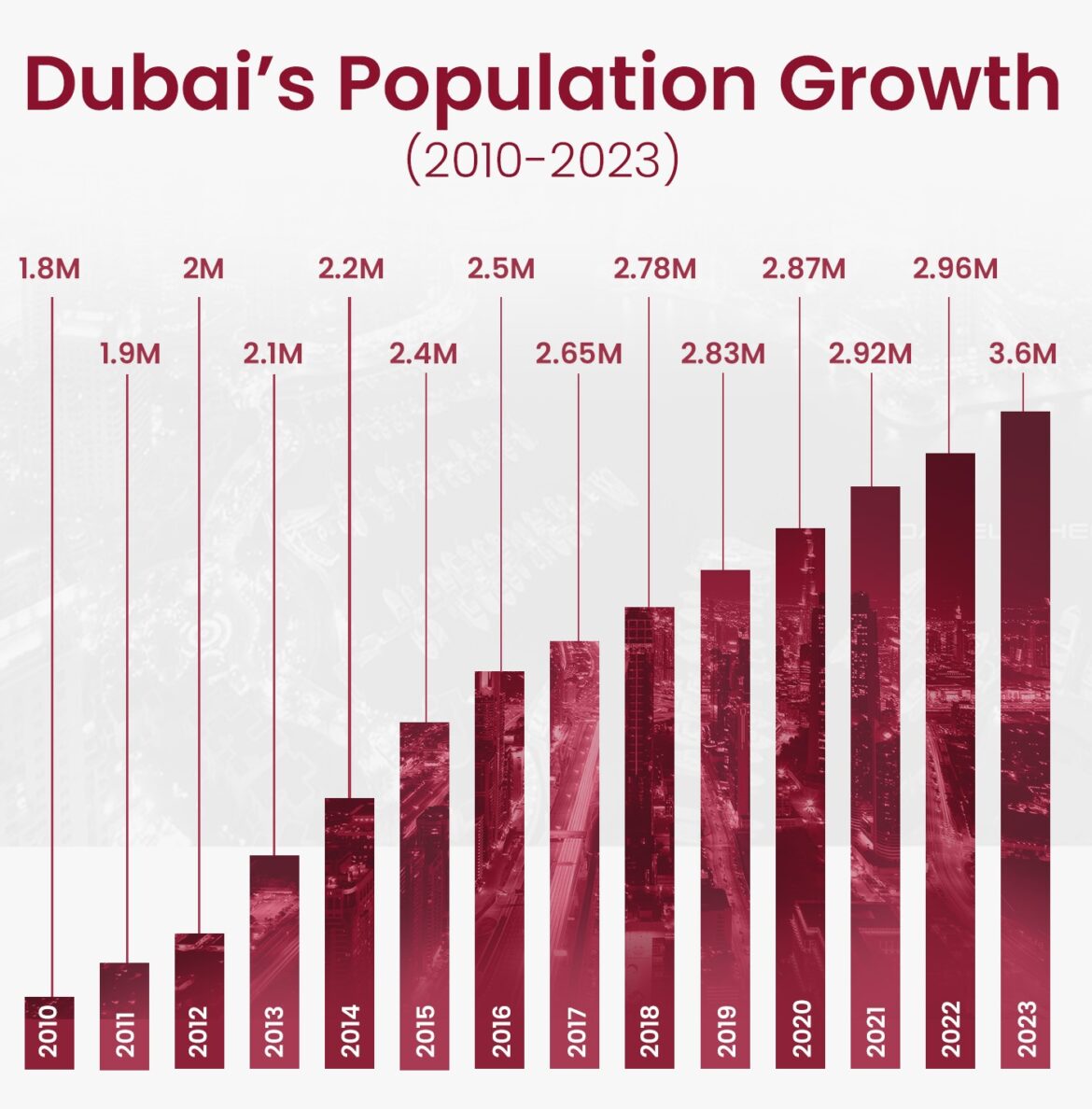By Khaleeji Times
Dubai recorded the highest increase in population last year since 2018 as the emirate continued to attract white-collar job-seekers, professionals and investors from around the world, latest figures show.
This influx of large number of new residents will boost demand for housing, transportation, utilities, healthcare and education, analysts said. It is also projected to “substantially increase” consumption in 2025 and in the next few years.
The emirate’s population grew by over 169,000 in 2024 to reach 3.825 million at the end of last year, according to the Dubai Statistics Centre.
The city’s population has been consistently increasing over the years — growing by more than 104,000 in 2023, 71,500 in 2022, and 67,000 in 2021. In 2019, the population of the regional economic hub expanded by over 162,000 in 2019 and over 215,000 in 2018, statistics show.
Dubai remained a magnet even during the Covid-19 year, attracting about 54,700 new residents in 2020. Experts said one the key factors that enhanced the emirate’s appeal during the pandemic was its success in handling the crisis.
The marked increase in Dubai’s population portrays people’s confidence towards the city, its economy and its future, said Atik Munshi, managing partner of FinExpertiza UAE.
In the daytime, Dubai’s population further increases by one million as residents of other emirates flock to the city for business and meetings. Majority of them come from neighbouring Sharjah, Abu Dhabi and Ajman.
Which sectors will benefit in 2025?
The increasing population plays a critical role in driving economic growth and expansion of the key sectors by boosting demand for consumer goods, housing and utilities, among others, in 2025 and beyond, experts said.
“Dubai and the rest of the emirates will definitely benefit through higher consumption and a better economy. With the overall increase in population now UAE has a much larger local market and consumption is bound to increase, this in turn helps companies to increase sales either directly or indirectly,” said Munshi.
Though an increase in population has many benefits, it also puts a strain on infrastructure, as traffic jams have become common in large cities globally.
“Dubai is extremely proactive in improving infrastructure needs; hence, one can expect a horizontal expansion of the emirates,” added Munshi.
Akbar Naqvi, managing partner of Zasard Holdings, said there will be a significant benefit for all government-related services, especially those that require fees.
“In the private sector, anything related to housing, transportation, utilities, healthcare, education, etc, will see an obvious benefit,” he said.
Naqvi said infrastructure would be strained, but consistent government investment would ensure that it does not snap under pressure.


